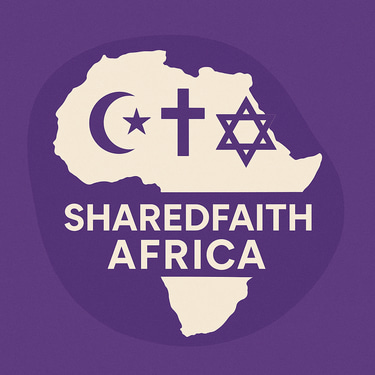Ethiopia: An interfaith council that turned trust into a public good
NATIONAL INTERFAITH PLATFORMS


Takeaway: Communities are safer and healthier when faith leaders refuse indifference and lend their credibility to peace and public health, side by side.
When Ethiopia rolled out its first COVID-19 vaccines in March 2021, the cameras found the usual scene. Health officials at a podium. Clipboards. Hand sanitizer on every table. Standing with them was Kesis Tagay Tadele, Secretary-General of the Inter-Religious Council of Ethiopia. His presence signaled something quiet and important. This was not only a medical campaign. It was a trust campaign.
Who is the IRCE? Formed in 2010 and certified by the Ministry of Federal Affairs, it brings together Ethiopia’s largest religious bodies to prevent violence, mediate local conflicts, and mobilize communities for the common good. By its own description, the council is represented at federal, regional, and district levels and was built to “join hands and hearts” across faith lines. In practice, that means a standing table where imams, priests, pastors, and other leaders can act together when the country needs them.
How broad is that table in real life? A 2024 peer‑reviewed study in Addis Ababa interviewed 21 leaders from the seven religious groups represented in the IRCE. The researchers found that most understood the risks of COVID-19 and leaned on familiar tools to build confidence. Sermons that linked protecting elders with vaccination. One‑on‑one counseling for worried congregants. WhatsApp groups and neighborhood visits to answer rumors in plain language. In other words, public health translated into moral terms people already recognized.
The launch week offered a small proof of concept. WHO Africa noted Ethiopia’s goal to vaccinate 20 percent of the population by the end of 2021, starting with 2.2 million COVAX doses. The kickoff at Eka Kotebe COVID-19 Hospital put the IRCE alongside government and UN partners, which hinted at the real bet here. Cold-chain logistics matter. So does social trust. Friday sermons, Sunday homilies, courtyard Q&As after prayers, teachers repeating the basics to parents at pickup time. That is how information sticks when uncertainty is high.
Peacebuilding is the council’s other lane. Program notes and partner case studies describe work that ranges from preventive dialogue to post-conflict projects. In some towns, imam-and-priest committees helped cool internal disputes over mosque leadership before they spilled outward. Woreda-level actors trained in basic mediation. “People-to-people” meetings were held where rumors had hardened into hostility. The pattern is consistent. Show up early. Lower the temperature. Keep neighbors talking before violence finds oxygen.
It is worth naming the limits. Trust in vaccines rose unevenly, and some communities stayed hesitant. Conflict has flared even where dialogue channels exist. Politics can make neutrality hard. Internet rumors often outrun any pulpit. None of that cancels the value of a standing interfaith platform. It suggests the work is ongoing and that credibility has to be earned, again and again.
Why does this matter in a broader interfaith story? Ethiopia’s example shows how a permanent council can pivot as needs change. First to keep the peace. Then to save lives during a pandemic. In both cases, the main obstacle is often indifference. It is easy to shrug at a rumor until it becomes a riot. It is easy to dismiss a vaccine until a neighbor dies. Making trust visible — on a launch stage, in a mosque courtyard, at a woreda office — appears to tilt decisions in safer directions.
Sources (selection)
WHO Regional Office for Africa on the March 13, 2021 launch and COVAX doses
URI profile of the Inter-Religious Council of Ethiopia
2024 peer‑reviewed study on vaccine trust in Addis Ababa (21 leaders, seven groups)
IRCE program materials and partner conflict‑mapping reviews (Norwegian Church Aid and others)


